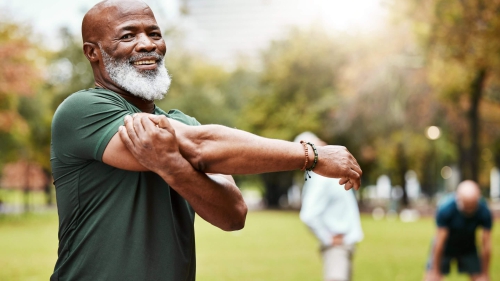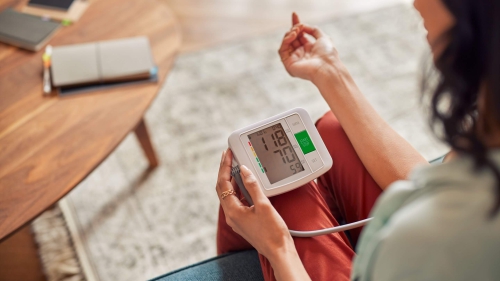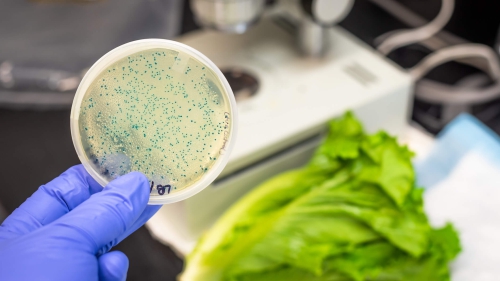Alternative Medicine: Why Not?
In an article published in The Journal of American Medical Association (JAMA) (April 14, 1998), Bruce H. Pomeranz (MD, PhD) and colleagues note that adverse drug reactions (ADRs) in U.S. hospitals kill more than 100,000 people nationwide each year. With such a high mortality rate, the authors classify ADRs as a leading cause of death, ranking it with such well-known killers as heart disease, cancer and stroke.
I was personally acquainted with several individuals who died from ADRs while thinking they were receiving the best medical care available on Earth. One of them, a professional Engineer, died about a year ago in Los Angeles, leaving behind his wife and two children. At one point in time, he realized that his doctors had tried some new medication in his treatment. But it was too late for him to fight a legal battle. All he got after complaining to the hospital was a change of doctor.
As my acquaintance's situation demonstrates, the dominant allopathic medicines are not always the best medicines available; yet they receive all the money and all the government attention. People have little information about alternative medicines that do not have the devastating ADRs of many allopathic medicines. So what happens, is that people are forced to accept conventional treatment as the only choice of medicine.
But what if alternatives were more readily available? The scenario might be entirely different with alternative medicines and healing techniques such as homeopathy and Eastern medicines. I am not an expert in any of these; yet as a conscious consumer and observer of healthcare services, I will testify that from my own personal experiences, alternative medicines and healing techniques have greatly diminished ADRs and extremely high healing potentials. Consider the following anecdotes:
One: In December 1992, the Children's Hospital in Columbus, Ohio, examined our five-year old son Shatil for about four months concluding that he suffered from renal glycosuria. Shatil was referred to the hospital when he was found to have a 4-5 percent discharge of sugar in his urine. In a letter, the Ohio State University's Pediatrics Professor, William Zipf, explained the studies on Shatil, certifying there was no treatment for this disease. My wife and I were stunned yet resigned, thinking we gave Shatil the best available healthcare.
Shatil's condition persisted and later he also developed high blood cholesterol. Eventually in 1996, we took him to Dr. Ali Ahmed, a well-known homeopathic practitioner in Bangladesh. Four weeks after taking the homeopathic medicines, tests revealed his blood cholesterol level and urine to be normal. We paid $15 for both fees and medicines to Dr. Ahmed, who imported his homeopathic medicines from California. This charge was nothing compared to the costs incurred during our tribulation with conventional healthcare providers in Ohio.
Two: In 1993, Scabies attacked my family, severely affecting our two children. After taking a two-week course of medicine from Ohio University's Osteopathic Medical Center, I noticed little change in our scabies' character. Our doctor said, "We have to treat the whole family, but I cannot give the medicine to the mother (i.e., my wife) because she is pregnant." This meant that she had to carry the disease for the remaining eight months of her pregnancy. I then called a Bangladeshi homeopathic doctor who gave me the name of a medicine over the phone. In the United States, the medicine cost me $4.50. After taking a few drops of the medicine, we were completely cured. When I shared this news with our doctor the following week, he was amazed. On hearing the story, one of his colleagues noted, "I take homeopathic medicine for myself, but I cannot give (prescribe) it to others."
Three: In March 1997, a pediatric dentist in Anaheim, Calif. found that each of our two daughters (ages four and half years old and three years old at the time) had developed eight cavities in their teeth. For reasons related to their age, he wanted to give them a general anesthetic. In addition to already substantial costs covered by our insurance, the fees charged to us for the actual dental work and the anesthesiology work would have totaled $1750. It was an amount I could not afford. But seeing the pain my children were experiencing, I knew I had to do something. So I drew on my self-study of homeopathy and procured a medicine from a Santa Monica homeopathic pharmacy for $7. It stopped the pain in a few hours and prevented further growth of the cavities. A little over two years later, we had our family dentist work on the cavities without the general anesthetic.
As the above anecdotes suggest, not only do alternative medicines and healing techniques have significantly reduced ADRs and acceptable healing potential, they also involve minimal expense compared to dominant allopathic medicine and surgery.
University of New Mexico Professor of Communication, Everet Rogers, who has studied diffusion of innovations (new ideas and technologies) over the past four decades, has found that many technologies with superior advantages over their conventional counterparts do not spread for various reasons. Some of those reasons include philosophical, rhetorical, and political factors that hinder the growth and spread of these treatments.
Philosophically, alternative medicines are not recognized as "scientific" and thus are rhetorically pushed into the background. This rhetoric serves the interests of corporations that seem to direct the course of our everyday life as consumers.
Politically, the health administration system does provide avenues by which information about alternative medicines can reach consumers. This in effect violates the lofty principles adopted in the U.S. Consumer Bill of Rights, which assures consumers the right to accurate information, to a choice of healthcare provider and to appropriate high-quality healthcare. As a consumer, I do not find myself at liberty to choose my healthcare provider beyond the allopathic healthcare community. My employer forces me to buy insurance services that do not cater to my need for alternative medicines.
The mistake of the government is that they blindly locate all consumer rights within one pigeonhole, the domain of allopathic medicine. The government must transcend their myopia and reconsider alternative medicines and techniques as complementary to conventional ones.
Mr. Auwal is an assistant Professor in the Department of Communication Studies, CSU, Los Angeles.
















